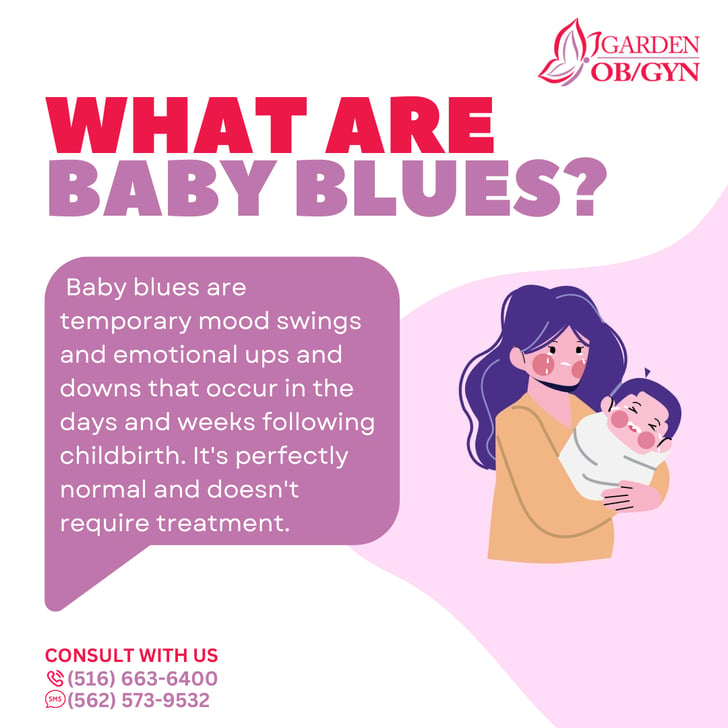After Birth: Understanding Baby Blues
Baby blues are common mood swings after birth, including weepiness, irritability, and anxiety, due to hormonal changes and motherhood adjustments. It doesn't diminish your love for your baby.

Welcoming a new life into the world is a momentous occasion, filled with joy, hope, and boundless love. However, it's also a time of significant change, and it's common for new mothers to experience a range of emotions in the days and weeks following childbirth. This emotional whirlwind is often referred to as the "baby blues," and in this article, we'll explore this normal postpartum phenomenon, what causes it, and how to navigate it.
What Are the Baby Blues?
The baby blues are a temporary and common set of mood swings and emotional fluctuations that many women experience after giving birth. These emotions can include weepiness, irritability, anxiety, and feeling overwhelmed. It's essential to understand that experiencing the baby blues doesn't mean you're not excited about your new baby or that you're not a loving parent. Rather, it's a reflection of the significant hormonal changes, sleep disruptions, and the enormous adjustment to motherhood that you're going through.
Why Do They Happen?
Several factors contribute to the onset of the baby blues. Hormonal fluctuations, particularly the sudden drop in pregnancy hormones, play a significant role. Additionally, sleep deprivation is a common feature of new motherhood, which can impact mood and emotional well-being. Finally, adjusting to the new responsibilities, the physical changes in your body, and the enormity of caring for a newborn can be overwhelming.
Common Feelings
The baby blues encompass a range of emotions that can come and go throughout the day. You might find yourself crying one moment and feeling anxious or irritable the next. These mood swings are entirely normal during this period.
Temporary Phase
The baby blues typically peak around the fourth or fifth day after childbirth, but they can appear as early as the second or third day. The good news is that these feelings are usually temporary and tend to subside within a few weeks. For most women, by the end of the first month postpartum, the baby blues are a thing of the past.
Coping Strategies
While the baby blues are a natural part of the postpartum period, it's important to take care of yourself during this time. Here are some strategies to help you cope:
Accept Help: Don't hesitate to accept help from family and friends. They can provide much-needed support and assistance with daily tasks.
Rest When You Can: Sleep whenever your baby sleeps. Rest is crucial for both physical and emotional recovery.
Open Communication: Share your feelings with your partner, close friends, or family members. Talking about what you're experiencing can be therapeutic and reassuring.
Self-Care: Take time for self-care, even if it's just a few minutes of relaxation. Consider activities that bring you joy and relaxation.
Reach Out for Support: If your feelings intensify, persist for more than a few weeks, or interfere significantly with your daily life, it might be a sign of postpartum depression. In such cases, seeking professional help is crucial.
Embracing Support
You're not alone in experiencing the baby blues. Many new mothers go through this emotional rollercoaster. It's a shared experience that unites mothers around the world. Embrace the support from your partner, family, and friends. Remember that these feelings are temporary, and as you adjust to your new role and routine, they will gradually fade away.
In the end, the baby blues are a normal part of the postpartum journey. Embrace the ups and downs, and allow yourself the grace to navigate this emotional terrain as you transition into your new role as a mother. Your baby is lucky to have you, and you are stronger than you know.
































